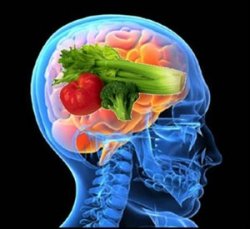 It is not easy to be a student – constant assignments, exams and lectures take a great toll on your ability to perceive and process information. While some problems can be solved by a bit of self-discipline and time management, if the workload becomes too strenuous, you have to use everything at your disposal to successfully deal with all this stress.
It is not easy to be a student – constant assignments, exams and lectures take a great toll on your ability to perceive and process information. While some problems can be solved by a bit of self-discipline and time management, if the workload becomes too strenuous, you have to use everything at your disposal to successfully deal with all this stress.
Changing your eating habits may seem to be a long shot from studying, but don’t forget – you are what you eat. And if eating certain products may do a world of good for the acuteness of your mind and power of your memory – do you really want to miss such an opportunity? Here they are:
- Oily fish is the first that comes to mind. It contains omega-3 fats necessary for correct functioning of the brain. Bad news – these fats cannot be synthesized by your body and have to be procured elsewhere. Good news – oily fish, such as salmon, trout, sardines, mackerel, herring and some other types are an excellent source of omega-3 fats. In addition to improving your immediate brain functions, regular consumption of oily fish drastically reduces risks of Alzheimer’s disease later in life.
- All kinds of nuts are not only tasty and nutritious, but extremely good for your brain. They contain great amounts of Vitamin E, and eating them regularly will boost your mental acuity. And again, going nuts right now may pay off later in life, because scientific evidence suggests that they greatly slow mental deterioration in old people.
- You probably know that wholegrain products are more wholesome than white flour in every respect. What you might not know is that they are much better for your brain as well as for the rest of the body. Just like your muscles, your brain depends on how steadily its energy is supplied, and constant, stable flow of nutrients is better than short-lived surges. Wholegrain products do exactly this – they slowly introduce glucose into the bloodstream, feeding your body for a long time.
- Blueberries – yet another combination of healthy and tasty. Diets rich in blueberries have been proved to protect brain from oxidative stress, improve learning abilities, short-term memory and motor skills, and greatly reduce the risks of developing Alzheimer’s disease and other similar conditions.
- Leafy vegetables – not all people like them, but scientists are quite sure that such vegetables as spinach, broccoli, kale and collard greens decrease the levels of homocysteine, thus preventing death of nerve cells in the brain.
Although changing your eating habits alone will not make you into a straight-A student, it may greatly improve your learning abilities and make your life much easier.